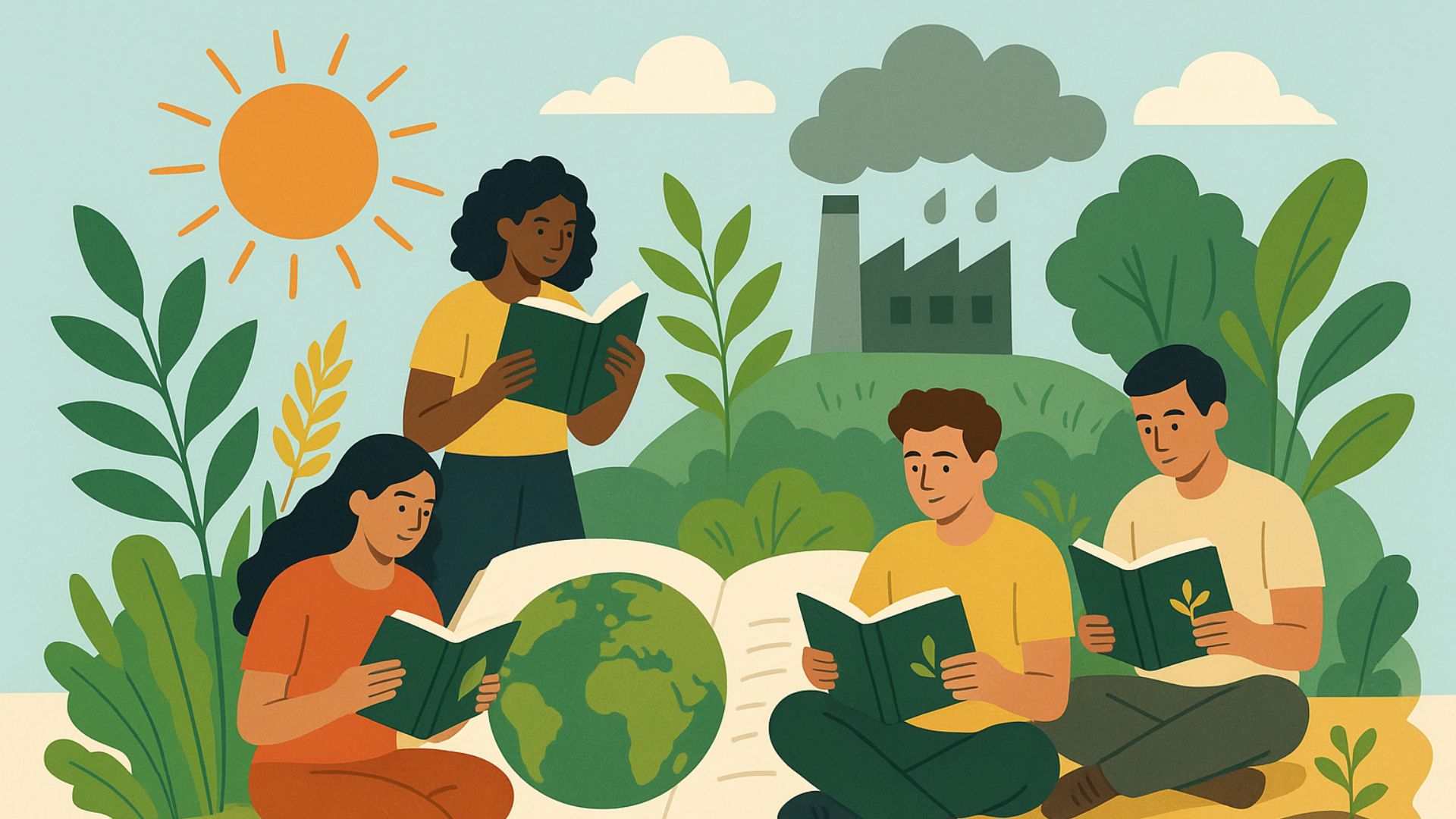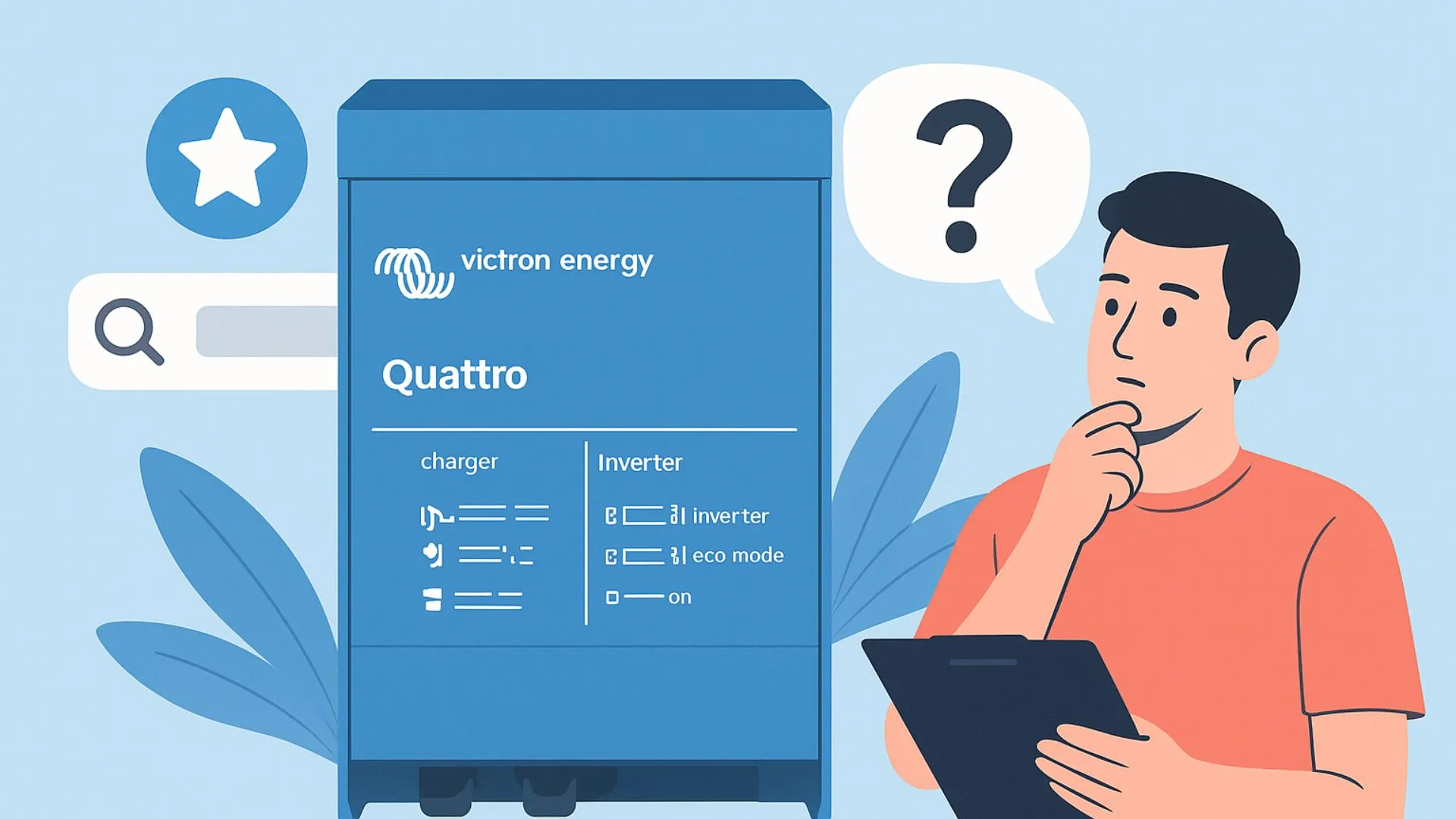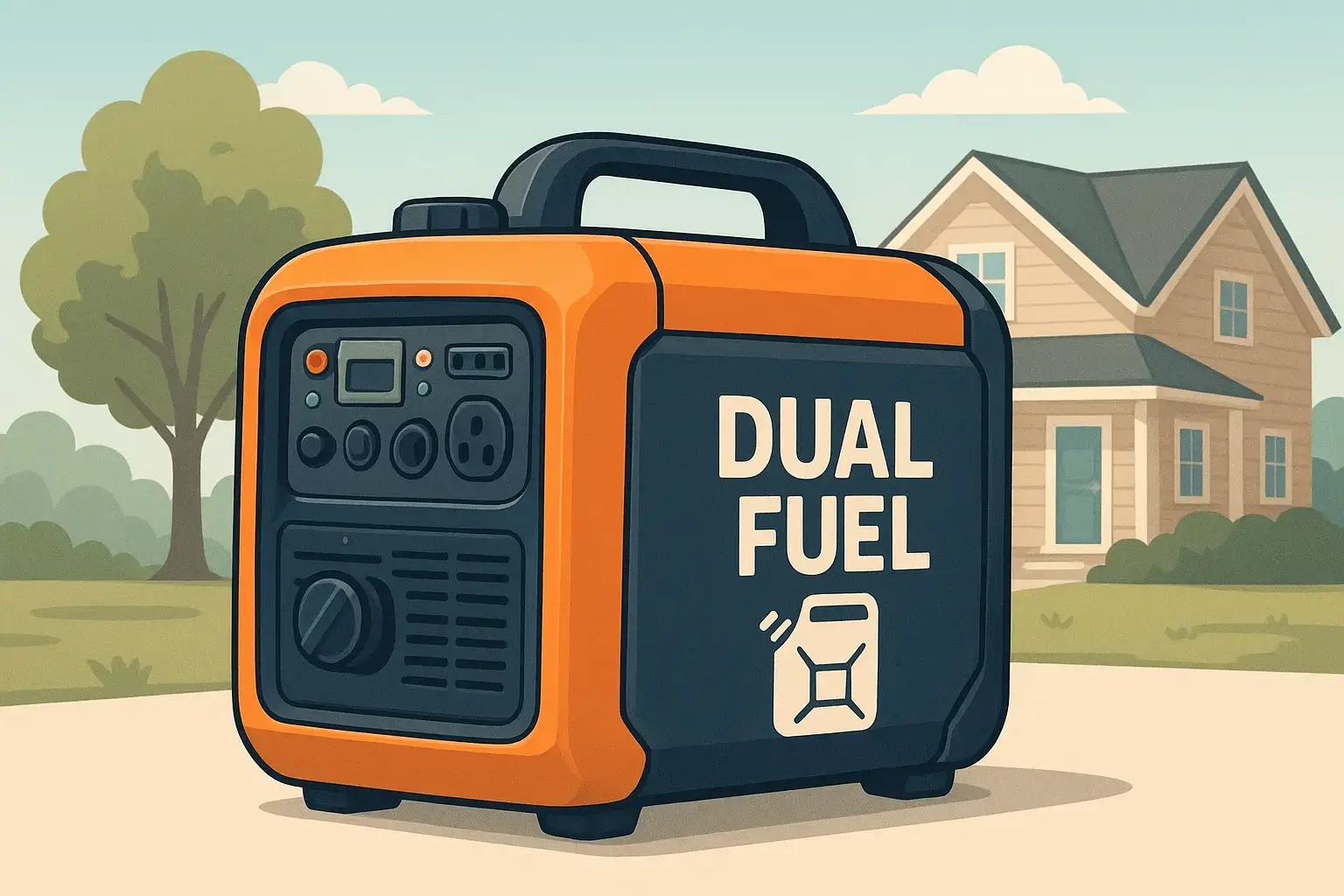Table of Contents
- Introduction 📜
- 1. “The Climate-Smart Agriculture Sourcebook” by FAO
- 2. “Agroecology: The Ecology of Sustainable Food Systems” by Stephen Gliessman
- 3. “The Carbon Farming Solution: A Global Toolkit of Perennial Crops and Regenerative Agriculture Practices for Climate Change Mitigation and Food Security" by Eric Toensmeier
- 4. “Advances in Computational Intelligence for Climate Change Security and Sustainability” edited by A. Shah and N.Z. Jhanijhi
- 5. “Resilient Agriculture: Cultivating Food Systems for a Changing Climate” by Laura Lengnick
- 6. “Handbook on Climate Change and Agriculture" by Dinar & Mendelsohn
- Closing Thoughts 💭
- FAQs ❓
⚠️ Looking for climate change and agriculture books? Audible offers a convenient way to listen to books on the go, turning commutes, workouts, or household chores into opportunities to learn. With a huge library of titles, including bestsellers and niche topics, Audible makes it easy to engage with books even when you don’t have time to sit down and read. Check out Audible for potential savings and discover how audio can bring your favorite books to life.
📌 This post may contain affiliate links, so we may receive compensation if you purchase products linked below. As an Amazon Associate, I earn from qualifying purchases. This helps support our work and allows us to create more helpful content for you at no additional cost to you. Read our disclosure for more information.
Introduction 📜
Climate change is transforming the way we produce food and manage agriculture.
As someone passionate about building resilient farming systems, I understand the urgent need to adapt to challenges like shifting weather patterns, soil health decline, and water scarcity.
To support farmers, students, researchers, and policymakers, I’ve created this list of the best books on climate change and agriculture—packed with research-based strategies, practical solutions, and innovative approaches to ensure sustainable food security for the future.
1. “The Climate-Smart Agriculture Sourcebook” by FAO
The Food and Agriculture Organization (FAO) has developed a comprehensive guide to climate-smart agriculture (CSA).
This essential book outlines proven strategies to reduce greenhouse gas emissions, boost agricultural productivity, and build greater resilience against the impacts of climate change.
For farmers, researchers, and practitioners, it’s an invaluable resource for implementing sustainable solutions and advancing food security worldwide.
Best of all, it’s open knowledge—completely free and easily accessible to everyone. You can explore it here.
Why It’s Recommended
- Evidence-based approaches: Backed by solid research and proven methods for advancing sustainable farming.
- Global case studies: Practical examples from around the world highlight how different regions are tackling climate change in agriculture.
- Adaptation and mitigation: Focuses on effective techniques to both reduce greenhouse gas emissions and strengthen resilience to climate impacts.
2. Agroecology: The Ecology of Sustainable Food Systems by Stephen Gliessman
Gliessman’s Agroecology completely changed how I see farming.
It breaks down complex ecological principles into practical strategies for sustainable agriculture,
highlighting biodiversity and climate resilience.
I came away inspired to rethink how we grow and share our food.
Key Highlights
- Ecological foundation for food systems: Explains how ecological principles underpin sustainable agriculture and resilient food systems.
- Comprehensive sustainability: Covers agricultural, ecological, economic, social, cultural, and political aspects of food system transformation.
- Practical and transformative: Provides real-world examples, case studies, and strategies to move beyond industrial agriculture toward food justice and sovereignty.
3. “The Carbon Farming Solution: A Global Toolkit of Perennial Crops and Regenerative Agriculture Practices for Climate Change Mitigation and Food Security” by Eric Toensmeier
Eric Toensmeier’s The Carbon Farming Solution blew my mind with how practical and visionary it is.
It shows that agriculture can move from being a climate challenge to a climate hero, offering concrete techniques—from regenerative grazing to perennial cropping—that actually store carbon while producing food.
After reading it, I feel energized and optimistic, knowing that farmers and communities have the tools to make a real difference for the planet.
Why It Stands Out
- Comprehensive toolkit: Brings together a wide array of carbon farming practices and perennial crops into one actionable resource.
- Practical impact: Provides step-by-step strategies that communities and farmers can implement immediately to sequester carbon and boost soil health.
- Global relevance: Highlights successful projects from diverse regions, demonstrating how carbon farming adapts to different climates, soils, and socio-economic contexts.
- Visionary yet accessible: Balances scientific research with actionable guidance, making it useful for both policymakers and hands-on farmers.
4. “Advances in Computational Intelligence for Climate Change Security and Sustainability” edited by A. Shah and N.Z. Jhanjhi
This book completely reshaped my understanding of climate solutions.
It dives into real-world tools and strategies—from predicting environmental changes and tracking pollution to improving water, energy, and food systems.
What really stood out to me is how it connects research, engineering, and environmental studies into practical, actionable solutions.
Reading it, I was struck by how these strategies can transform production and consumption, tackle resource challenges, and build a more sustainable future.
For anyone interested in climate, sustainability, or innovative approaches to global challenges, this book is a must-read and a powerful source of insight.
Highlights
-
Real-world impact: Explores practical applications of AI and computational intelligence in energy, water, mobility, and agriculture.
-
Multidisciplinary approach: Combines insights from engineering, computer science, environmental studies, and economics for a holistic understanding of sustainability.
-
Actionable solutions: Offers strategies to predict environmental changes, track pollution, and improve resource management, making complex data usable for real-world sustainability efforts.
5. Resilient Agriculture: Cultivating Food Systems for a Changing Climate by Laura Lengnick
Reading Resilient Agriculture completely shifted how I think about farming in a changing climate.
Instead of just focusing on problems, it highlights real-world solutions—farmers adapting to hotter summers, shifting seasons, and extreme weather with regenerative practices.
What really stood out to me is that resilience isn’t just a plan; it’s a way of thinking. The book shows how healthy soil, strong communities, and sustainable production all connect, in ways that feel both urgent and possible.
I left the book feeling energized to support food systems that don’t just survive—they regenerate. It’s a reminder that careful stewardship and collaboration can truly shape the future of agriculture.
Lengnick blends insight, real stories, and practical advice so smoothly that it doesn’t just teach; it motivates you to act.
Key Takeaways
- Real-world solutions: Shares practical stories from farmers and communities successfully adapting to climate change.
- Regenerative focus: Highlights methods to transform food systems into ones that are resilient, just, and sustainable.
- Connecting the dots: Bridges climate science, resilience thinking, and social equity to guide actions at farm and community levels.
- Updated insights: Features the latest data on regional weather shifts and practical adaptations for organic, climate-smart, and regenerative farming.
- Practical inspiration: Offers both strategic guidance and real examples to help anyone—from farmers to concerned eaters—take meaningful steps toward sustainable food systems.
6. Handbook on Climate Change and Agriculture by Dinar & Mendelsohn
Reading this book opened my eyes to the real impact of climate change on agriculture.
It explores everything from shifts in temperature and rainfall to how farmers can adapt and policymakers can respond.
What I found most compelling is how it bridges rigorous research with practical solutions that can be applied on farms and in policy decisions.
Going through it, I was amazed at how interconnected the economy, environment, and farming really are, and how informed strategies can safeguard livelihoods and food security.
For anyone working in agriculture, economics, or environmental policy—or simply curious about how we feed the world in a changing climate—this book is insightful, practical, and essential reading.
Why It’s Useful
- Comprehensive and multidisciplinary: Brings together research from economists, agronomists, climate modelers, and policy experts to provide a wide-ranging understanding of climate change impacts on agriculture.
- Practical insights for professionals: Offers guidance useful for policy analysts, development agency staff, and legal professionals dealing with environmental and agricultural issues.
- Focus on real-world impacts: Covers agronomic effects, economic consequences, mitigation strategies, and farmer adaptation, making it a practical resource for building resilient agricultural systems worldwide.
Closing Thoughts 💭
Exploring climate change and agriculture books has completely transformed how I see farming in a changing world.
.
These books don’t just explain the science, they offer practical strategies, real-world examples, and inspiration for building resilient food systems.
.
Reading them has motivated me to take action, support farmers, and better understand how agriculture can adapt and thrive despite climate challenges.
.
For readers interested in broader sustainable practices, I’ve also explored books about electric cars and books about living off the land that complement these insights perfectly.
FAQs❓
1. How Does Climate Change Affect Agriculture?
+Climate change impacts agriculture through rising temperatures, altered rainfall patterns, increased droughts and floods, and shifts in pest and disease patterns, reducing crop yields and livestock productivity.
2. What Is Sustainable Agriculture?
+Sustainable agriculture is farming that meets current food and textile needs without compromising the ability of future generations to meet their needs. It emphasizes environmental health, economic profitability, and social equity.
3. Which Farming Methods Help Reduce Climate Change?
+Methods such as agroforestry, cover cropping, conservation tillage, precision farming, and organic farming help sequester carbon, reduce emissions, and improve soil health.
4. How Can Farmers Adapt To Climate Change?
+Farmers can adapt by using drought-resistant crop varieties, improving irrigation efficiency, diversifying crops, implementing soil conservation practices, and using climate forecasting tools.
5. What Are Climate-smart Agriculture Practices?
+Climate-smart agriculture integrates practices that increase productivity, enhance resilience to climate change, and reduce greenhouse gas emissions, like crop rotation, integrated pest management, and water-efficient irrigation.
6. Can Agriculture Contribute To Climate Change?
+Yes. Agriculture contributes to climate change through greenhouse gas emissions from livestock, fertilizer use, deforestation, and energy-intensive farming practices.
7. What Are Some Recommended Books On Climate Change and Agriculture?
+Some recommended books on climate change and agriculture include: The Climate-Smart Agriculture Sourcebook by FAO, Agroecology: The Ecology of Sustainable Food Systems by Stephen Gliessman, The Carbon Farming Solution by Eric Toensmeier, Advances in Computational Intelligence for Climate Change Security and Sustainability edited by A. Shah & N.Z. Jhanjhi, Resilient Agriculture: Cultivating Food Systems for a Changing Climate by Laura Lengnick, and Handbook on Climate Change and Agriculture by Dinar & Mendelsohn.














